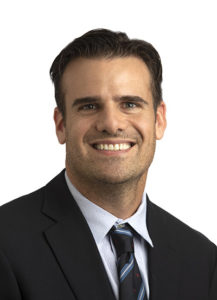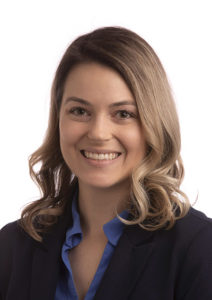A new collaboration to better understand Keratoconus Dystrophy

Drs. Dimitrios Karamichos and Melissa Petersen at The University of North Texas Health Science Center at Fort Worth, are teaming with DownSyndrome Achieves (DSA) Biobank in Ohio to find clues about Keratoconus Dystrophy. Their research will help better identify individuals with Down syndrome who are at risk of the disease and whether this disease can be prevented with medicine.
“Keratoconus is a complex, multifactorial, corneal disease that remains a mystery, in the context of its onset, rate of progression, and underlying pathobiology,” said Dr. Karamichos, Director of Research at HSC’s North Texas Eye Research Institute.
“Progressive ectasia (bulging), corneal thinning, and scarring are the hallmarks of Keratoconus, known to affect both males and females,” said Dr. Karamichos.
Dr. Petersen is an Assistant Professor in the Department of Family Medicine & Institute for Translational Research at HSC, and currently serves as a co-principal investigator.
Keratoconus Dystrophy has been on the rise.
“Prevalence has been increasing steadily, going from 1:2000 in the 1980s to 1:350 in the 2000s worldwide,” said Dr. Karamichos. “The condition appears very prevalent in the Down syndrome population, and that is why this study is so important.”

If left untreated, Keratoconus can cause problems with vision and, in severe cases, require corneal transplants, said Dr. Karamichos, a Professor of Pharmaceutical Sciences in the HSC College of Pharmacy.
Keratoconus affects more than 30% of people with Down syndrome, compared with less than 1% of the general population.
Biospecimens collected by the DSA Biobank, which is located at Cincinnati Children’s Hospital Medical Center (CCHMC) in Ohio, are used by HSC experts to study the eye disease.
“DSA Biobank is a powerful resource for researchers to elevate the standard of care for health conditions that co-occur with Down syndrome, including Keratoconus,” said DownSyndrome Achieves president and CEO, Lito Ramirez.
“The biospecimen we collect enable researchers to increase our scientific understanding of DS, and hopefully yield improved diagnostics and therapies for people with Down syndrome in terms of years rather than decades,” Ramirez said.
DownSyndrome Achieves (DSA), an Ohio-based research advocacy group, launched the DSA Biobank in 2015. The Biobank is a central repository for biospecimens donated by people with Down syndrome and their families.
“Obtaining clinical samples for research from individuals with Down syndrome has been extremely challenging,” Dr. Karamichos said. “With DSA Biobank, we now have access to the critical samples we need to continue our work.”
Dr. Karamichos added: “We look forward to a long-term collaboration with DSA Biobank, and more studies to come.”
Last September, Dr. Karamichos was awarded a $275,000 grant from the National Eye Institute (NEI)/National Institutes of Health (NIH) that allows for the two-year study of Keratoconus. The study includes adult patients with Down syndrome between the ages of 19-50. Study samples are collected longitudinally over two years, according to DSA.
“Data obtained from this study could help facilitate the development of a screening tool for detecting individuals with Down Syndrome who are at risk for development of keratoconus, with the goal of defining potential enrollment into clinical trials,” Dr. Karamichos said.
This critical work continues as the DSA Biobank expands its reach and as people across the globe continue to bring attention to the needs of people with Down syndrome.
The latter is the focus of World Down Syndrome Day, which takes place March 21.



![Uyen Sa Nguyen Scaled[58]](https://www.unthsc.edu/newsroom/wp-content/uploads/sites/16/Uyen-Sa-Nguyen-scaled58-145x175.jpg)

Social media